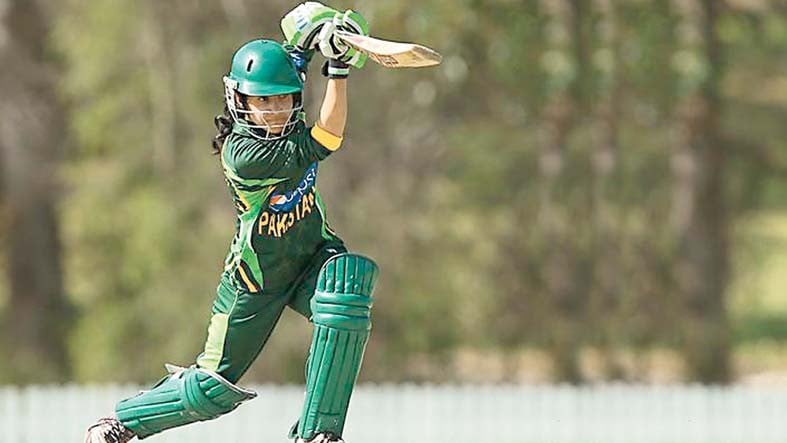
Javeria Khan vows to get herself recognised as a top international all-rounder

Javeria Khan, also known as Javeria Wadood, is a permanent member of Pakistan’s women cricket team and is regarded as its backbone. She started her career as an off-spinner, but then she was stopped from bowling in international cricket after her action was found to be illegal. That, however, didn’t stop Javeria. Instead of quitting, she continued to work hard and transformed herself into a proper batter and played some important knocks for Pakistan.
Now that she has got her action cleared from the ICC, she spoke to The News on Sunday and vowed to get herself recognised as a top international all-rounder.
Here are excerpts from the interview.
The News On Sunday: What encouraged you to opt for playing cricket?
Javeria Khan: I’ve been active in sports since school times but pursuing it as a career was not in the plans. It started from college where my sports teacher took me for regional cricket trials where I got selected. My school and college, Trinity Methodist, is one of the main actors behind me being in the Pakistan team.
TNS: Pursuing cricket as a profession in Pakistan is never so easy. How challenging was your journey to international cricket?
JK: I hail from a tribal background where men didn’t know about cricket. But, if you ask them now about women cricket, they will tell you my name with pride. I didn’t have to face any problems because my family doesn’t differentiate between my brothers and me.
TNS: What was the immediate reaction of your family when you were first selected to represent Pakistan?
JK: Not only my family but everyone who knows me was very proud. It was as if they were selected and I was congratulating them.
TNS: How difficult is it to manage your professional career along with education?
JK: It is quite difficult to manage both. I wanted to do CA but the kind of cricketing schedule I had, it was not possible for me to go for it, so I opted for Bachelor’s in Humanities but that wasn’t easy as well; exams would fall in days when I had camps but things were managed. Educational institutions should give some relaxation to those who represent the country.
TNS: How difficult was to switch from bowling to batting?
JK: It was in 2010. Cricket was almost over for me, but my family, senior teammates and PCB women wing encouraged me to bat. Transformation is not easy. It requires a lot of time and hard work, faith and dedication. I am very happy that I’ll now be able to play as an all-rounder.
TNS: What is the most memorable moment in your professional career?
JK: Winning gold medal twice and scoring my first ODI century.
TNS: Calendar for men cricketers is always so packed, but you don’t get much international exposure. How would things be if you got equal number of international matches?
JK: The more you face good teams the better you play. In a short span our game has improved and it is much better than before. Introduction of ICC championship where eight top teams are to play against each other within two years is good. Teams like ours who don’t get to play much international matches will now be able to do so.
TNS: Do you think an IPL like tournament for women cricketers will do any good for women cricket?
JK: Why not! It will attract talent, sponsors and media coverage and take women cricket to another level.
TNS: You made your debut for Pakistan in 2008. How would you describe the improvement in standard of women cricket in Pakistan since then?
JK: Radical! At that time we lacked facilities and international exposure. The change came after 2010 gold medal which brought us in the limelight. We were given central contracts and more international matches that helped us grow in all the departments. Five of our girls are among top world players. This shows the growth of women cricket.
TNS: What future do you see for women cricket in Pakistan?
JK: As long as new talent keeps coming, proper coaching facilities in regions are given, the future is bright.
TNS: Is PCB doing enough for women’s cricket? If not, what more would you like them to do?
JK: PCB has been providing us facilities and opportunities that were not given before which is a good step. But there is always room for improvement and we have a long way to go. To further promote women cricket we need grounds in every big city, strong domestic structure, introduction of more departments to help girls financially, television coverage of our matches.
TNS: When do you think Pakistan can become a major force in women’s cricket?
JK: There is no short cut to it. We will make our efforts. Society needs to come forward and send girls to play.
TNS: What would you advise to girls who are aiming to be the next Javeyria or Sana Mir?
JK: Be Yourself. Think BIG, but do not forget to act.